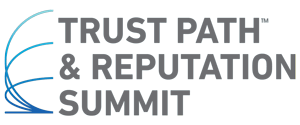Economy
Politics
Media
The Drivers of Corporate Reputation
Corporate reputation is influenced by several key factors. High-quality products and services, strong financial performance, and ethical leadership are essential. A positive workplace environment and commitment to social responsibility also play significant roles. Effective communication and maintaining customer satisfaction further enhance a company's reputation.
Importance of Financial Regulations on the Reputation Scale
Adhering to financial regulations ensures that a company operates within legal frameworks, fostering trust and credibility among investors and stakeholders. Compliance minimizes the risk of legal issues and financial scandals, enhancing corporate reputation and stability. Transparent financial practices signal reliability and ethical conduct, crucial for maintaining investor confidence.
Role of Sustainable Development Policies in Trust Building
Implementing sustainable development policies demonstrates a company's commitment to environmental and social responsibility. This fosters trust and loyalty among consumers, employees, and communities. Companies that prioritize sustainability are often seen as forward-thinking and ethical, enhancing their overall reputation and attracting socially conscious stakeholders.
Implementation of Fair-Trade Practices to Foster Trust
Adopting fair-trade practices ensures ethical sourcing and fair treatment of workers, positively impacting a company's reputation. This commitment to ethical standards builds trust with consumers who value social responsibility. Fair-trade practices also strengthen relationships with suppliers and enhance brand loyalty among socially aware customers.
Establishing Long-term Trust: Financial Transparency Strategies
Financial transparency involves clear, accurate, and timely disclosure of financial information, fostering long-term trust with stakeholders. Transparent financial reporting reduces uncertainty and builds investor confidence. Companies that prioritize financial transparency are perceived as honest and accountable, which is crucial for sustaining trust and reputation over time.
Partnerships in Trust Development
Forming strategic partnerships can enhance a company’s reputation by associating it with other reputable entities. Collaborations can amplify positive impacts, share resources, and improve credibility. Effective partnerships demonstrate a company’s commitment to mutual goals and values, strengthening trust with stakeholders through joint efforts and shared successes.
Greater Emphasis on Transparency when Building Trust
Emphasizing transparency in operations and communications builds trust by showing openness and honesty. Transparent practices, such as clear reporting and open dialogue with stakeholders, reduce suspicions and improve accountability. Companies that prioritize transparency are more likely to gain and maintain the trust of customers, investors, and employees.
Operationalizing Transparency and Proactivity
Operationalizing transparency involves integrating clear, honest communication and proactive measures into daily business practices. Proactive transparency means anticipating stakeholder concerns and addressing them before issues arise. This approach fosters trust by demonstrating a commitment to openness and ethical behavior, ultimately enhancing the company’s reputation.
The Benefits of an Excellent Reputation
An excellent reputation enhances a politician's ability to lead and influence by fostering public support and confidence. It facilitates smoother legislative processes and strengthens electoral prospects. A solid reputation also builds credibility, making it easier to implement policies and gain the trust of both constituents and international partners.
Building Trust through Ethical Leadership
Ethical leadership is crucial for building public trust in government. Leaders who demonstrate integrity, transparency, and accountability inspire confidence among citizens and other stakeholders. Ethical conduct helps mitigate corruption and ensures that government actions align with public values and expectations.
The Drivers of Public Trust in Government
Public trust in government is driven by transparency, effective communication, and consistent policy performance. Key factors include honest reporting, responsive governance, and visible results from policy initiatives. Building and maintaining trust requires ongoing engagement and demonstrating a commitment to addressing public needs and concerns.
The Role of Government in Cultivating Soft Power
Governments use soft power to shape global perceptions and influence through cultural diplomacy, aid, and strategic alliances. Cultivating soft power enhances national reputation and fosters positive international relationships. Effective use of soft power can also support economic and political objectives on the global stage.
Reputation Building through Policy Performance
A government's reputation is significantly influenced by its policy performance. Successful implementation of effective and impactful policies reinforces public confidence and supports political legitimacy. Conversely, poor policy outcomes can damage reputation and erode public trust, highlighting the importance of competent governance.
Strengthening Trust through International Cooperation
International cooperation helps build trust by demonstrating a commitment to global challenges and collaborative solutions. Engaging in joint initiatives and honoring international agreements reinforce a government's reliability and enhance its reputation on the global stage. Strong international partnerships also bolster domestic trust in government leadership.
Harnessing Soft Power Assets
Harnessing soft power assets, such as cultural influence and diplomatic engagement, can enhance a country's global standing and reputation. Effective use of these assets helps shape favorable international perceptions and fosters cooperative relationships. This approach also supports broader strategic objectives and enhances national influence
Improving Reputation through Global Regulations
Adhering to and advocating for global regulations improves a government's reputation by demonstrating commitment to international norms and standards. Compliance with global regulations on issues like climate change and trade bolsters credibility and fosters positive relations with other nations and international organizations.
Trust-building through Cybersecurity
Effective cybersecurity measures are essential for building and maintaining public trust in government institutions. Protecting sensitive data and ensuring the integrity of digital systems prevent breaches that could undermine confidence. Robust cybersecurity demonstrates a commitment to safeguarding public and national interests in an increasingly digital world.
Media Influence and Reputation
The media plays a critical role in shaping public perception and corporate reputation. Positive media coverage can enhance a company's image, while negative reporting can significantly damage it. Consistent, accurate portrayal in the media helps build credibility and trust among the public and stakeholders.
Media Coverage and Political Trust
Media coverage influences political trust by shaping how government actions and policies are perceived. Balanced and fair reporting can foster public trust in political institutions, while biased or sensationalized coverage may erode confidence. The media’s role in holding politicians accountable is crucial for maintaining political trust.
Journalistic Integrity and Reputation
Journalistic integrity is vital for maintaining the credibility of both the media and the subjects they cover. Upholding ethical standards in reporting ensures that the information presented is accurate and unbiased, which is essential for building and sustaining public trust in the media and the entities being reported on.
Digital Media Regulations for better Trust and Reputation
Regulating digital media platforms is essential to ensuring accurate information dissemination, which in turn builds public trust. Effective regulations can curb the spread of misinformation and enhance the credibility of online content, thereby improving the overall reputation of digital media sources.
Open Data Initiatives
Open data initiatives, supported by the media, increase transparency and public access to information, fostering greater trust in institutions. By reporting on and promoting these initiatives, the media can enhance its role as a conduit for transparency and accountability, thereby boosting its own reputation as well.
Increased Importance of Digital Reputation
In the digital age, a company’s online reputation is increasingly important, as media platforms rapidly influence public opinion. Digital reputation management involves monitoring and responding to media coverage across various platforms to maintain a positive image, crucial for sustaining trust in the digital landscape.
Research on Media Trust and Influence
Ongoing research into media trust and influence provides insights into how different media outlets affect public perception. Understanding these dynamics helps media organizations improve their credibility and tailor their content to foster trust. It also informs companies on how to better manage their reputations through strategic media engagement.
Enhancing Trust and Reputation in Media Through AI Integration
Integrating AI in media operations can enhance trust by improving the accuracy and personalization of content. AI-driven tools help detect misinformation and ensure that media outlets deliver reliable, fact-checked information, thus boosting their reputation and the trustworthiness of their reporting.

